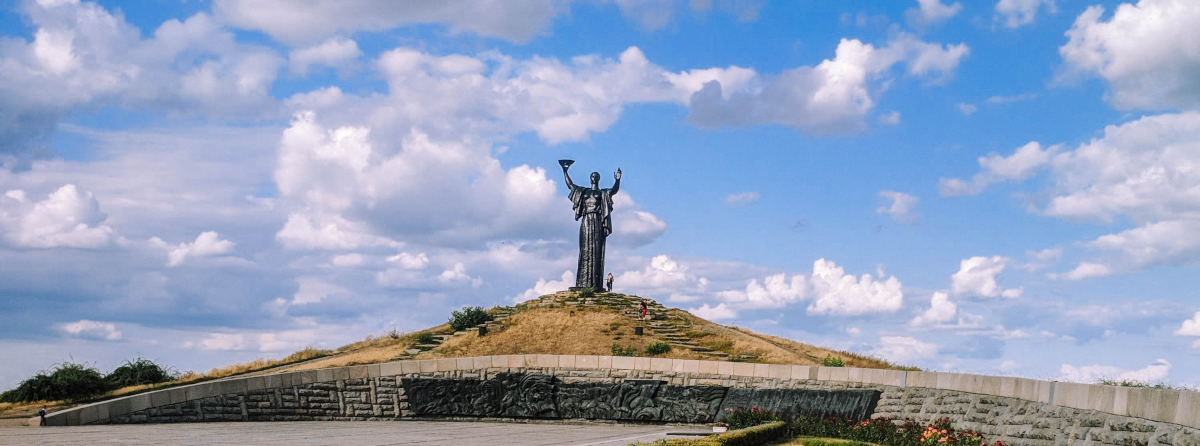
The origine of Slava Ukraini, heroyam slava!
May 9, 2023
Vyshyvanka Day in Ukraine: Celebrating a Rich Tapestry of Tradition
May 18, 2023The plight of the Crimean Tatars is a haunting tale of injustice and suffering. This marginalized community, which has called the Crimean Peninsula home for centuries, experienced a dark period in the mid-20th century when they were forcibly deported from their ancestral lands. This article explores the historical background, the events surrounding their deportation, and the enduring impact it had on the Crimean Tatar community. The tragic saga of the Crimean Tatars serves as a stark reminder of the devastating consequences of political oppression and the resilience of a people determined to preserve their identity.
Historical Background
To understand the forced displacement of the Crimean Tatars, it is essential to delve into their rich historical background. The Crimean Tatars, a Turkic-speaking ethnic group, have inhabited the Crimean Peninsula for over 700 years. Their culture, traditions, and language developed in this region, making it an integral part of their identity.
However, in 1783, the Crimean Khanate was annexed by the Russian Empire. The Tatars, as a Muslim minority, faced discrimination and periodic attempts at Russification. The situation further worsened during World War II when the Soviet authorities accused the entire Crimean Tatar population of collaboration with Nazi Germany.
Forced Deportation
The forced deportation of the Crimean Tatars began on May 18, 1944, when the Soviet government, under the orders of Joseph Stalin, forcibly expelled the entire Crimean Tatar population. In a matter of days, over 190,000 Tatars were forcibly loaded onto trains and transported to remote areas of Central Asia, primarily Uzbekistan. The reasons behind the deportation were largely political, as the Soviet regime sought to suppress any potential opposition and strengthen its control over the strategically significant Crimean Peninsula.
The deportations were carried out with great brutality and disregard for human rights. Families were torn apart, homes were confiscated, and individuals were subjected to harsh conditions during the long and arduous journey. Many perished due to the harsh circumstances, lack of food and medical care, and the overall trauma of the forced displacement.
Life in Exile and Struggle for Return
Life in exile was incredibly challenging for the Crimean Tatars. They faced difficulties in adapting to unfamiliar environments, living in cramped conditions, and finding employment. However, despite these hardships, the Crimean Tatars managed to maintain their identity and cultural heritage, ensuring that their language, traditions, and customs were preserved.
With the advent of political reforms in the Soviet Union during the 1980s and the subsequent dissolution of the Soviet Union, the Crimean Tatars saw a glimmer of hope for their return. They began organizing and advocating for their right to return to their ancestral lands in Crimea. In 1989, the Soviet government officially recognized the unjust nature of the deportations and denounced them as a violation of human rights.
Return and Contemporary Challenges
Following the collapse of the Soviet Union, some Crimean Tatars began returning to their homeland. However, their return was not without obstacles. The process of reclaiming their confiscated property and reintegrating into the society from which they had been forcibly expelled proved to be a complex and lengthy endeavor. Moreover, the annexation of Crimea by Russia in 2014 created a new wave of challenges for the Crimean Tatar community, with increased discrimination, restrictions on their rights, and suppression of their cultural and political autonomy.
Conclusion
The forced displacement of the Crimean Tatars remains a painful chapter in history, highlighting the immense suffering inflicted upon a community due to political motives. Despite their hardships, the Crime an Tatars have shown remarkable resilience and determination in preserving their cultural heritage and fighting for their rights. The international community must continue to acknowledge and support their cause, advocating for justice, human rights, and the right to self-determination.
Efforts to provide reparations and restitution for the Crimean Tatars should be pursued, ensuring that those affected by the forced deportation are compensated for their losses. Additionally, steps should be taken to address the ongoing discrimination and human rights violations faced by the Crimean Tatar community in Crimea.
Education and awareness about the history and struggles of the Crimean Tatars should be promoted, both within the Crimean Peninsula and internationally. By shedding light on this dark period, we can contribute to the prevention of similar atrocities and promote tolerance, understanding, and respect for all ethnic and religious groups.
The forced displacement of the Crimean Tatars serves as a poignant reminder of the consequences of political oppression and the enduring resilience of a marginalized community. It is a story of sorrow, strength, and the unwavering spirit of a people determined to reclaim their identity and rightful place in history. As we reflect on this tragic chapter, let us work towards a world where such injustices are not repeated, and where all communities can live in peace, harmony, and dignity.


